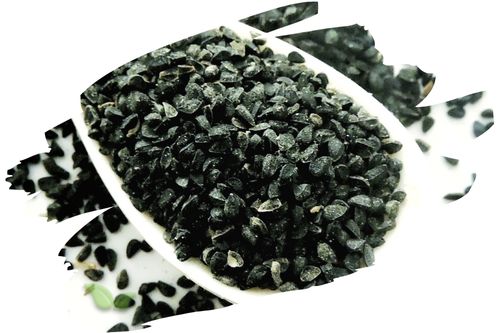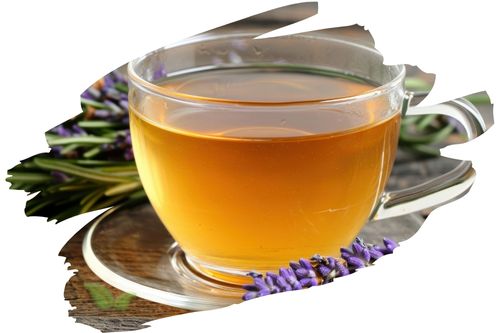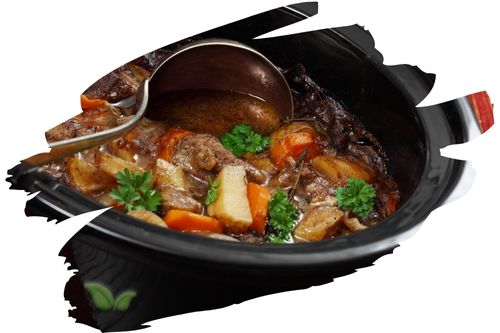
Introduction
Welcome to the fascinating journey of discovering Makrut Lime, the fragrant citrus that has been an integral part of Asian cuisine for centuries. Also known as Kaffir Lime, this small green fruit with bumpy skin is famous for its incredible aroma and bold flavor. Throughout this article, we will explore the rich history, culinary applications, health benefits, and other interesting aspects of the Makrut Lime. So, fasten your seatbelts and let's embark on a citrusy adventure!
The Origins of Makrut Lime
Makrut Lime (Citrus hystrix) traces its roots back to Southeast Asia, where it is believed to have originated. The plant thrives in tropical and subtropical regions, including Thailand, Indonesia, and Malaysia. The locals have cherished this citrus gem for generations, incorporating it into their traditional dishes and medicinal remedies.
Unraveling the Unique Aroma and Flavor
The magic of Makrut Lime lies in its aromatic zest and tangy taste. The essential oils found in the rind release a refreshing and intense fragrance when crushed or grated. This captivating scent is a defining feature of Thai and Indonesian cuisines, giving their dishes an unmistakable identity. Additionally, the leaves of the Makrut Lime tree boast a distinctive aroma that adds a delightful essence to various recipes.
Culinary Uses of Makrut Lime
The culinary world cherishes Makrut Lime for its versatility and ability to elevate dishes to new heights. Here are some delightful ways this citrus fruit enhances Asian cuisine:
1. Aromatic Zest in Curries and Soups
The zest of Makrut Lime is often used to infuse curries, soups, and stews with a burst of citrusy fragrance. A simple addition of grated Makrut Lime rind can turn an ordinary dish into an extraordinary one.
2. Flavorful Leaves in Stir-Fries
Makrut Lime leaves are a common ingredient in Thai stir-fries, imparting a unique taste and aroma. The leaves are typically torn or chopped before adding to the dish, releasing their essence into the hot oil.
3. Zesty Marinades and Dressings
Marinades and dressings come alive with the addition of Makrut Lime juice. Its tangy and refreshing flavor perfectly complements grilled meats, seafood, and salads.
4. Exotic Desserts and Beverages
In some Southeast Asian desserts and beverages, Makrut Lime plays a central role in providing a citrusy twist. From refreshing sorbets to sweet marmalades, the fruit lends its distinctive touch.
Health Benefits of Makrut Lime
Apart from its culinary merits, Makrut Lime also offers numerous health benefits, making it a valuable addition to any diet:
1. Rich in Antioxidants
Makrut Lime is packed with antioxidants, which help neutralize harmful free radicals in the body and promote overall health.
2. Immune-Boosting Vitamin C
Being a citrus fruit, Makrut Lime is an excellent source of vitamin C, essential for bolstering the immune system and supporting skin health.
3. Aids Digestion
The natural acidity of Makrut Lime aids in digestion and can help alleviate indigestion and bloating.
4. Soothes Skin Irritations
Makrut Lime leaves and rind contain essential oils that possess anti-inflammatory properties, providing relief from skin irritations and insect bites.
The Makrut Lime in Folklore and Tradition
Throughout history, Makrut Lime has held a special place in Southeast Asian culture and tradition. In Thailand, the fruit is considered sacred, and its leaves are often used in religious ceremonies for purification and good luck. In Indonesian folklore, the essence of the Makrut Lime is believed to ward off evil spirits and bring prosperity to the household.
Makrut Lime in Modern Cuisine
As the world becomes more connected, Makrut Lime has found its way into the kitchens of chefs worldwide. Its enchanting flavor and versatility have garnered attention from the culinary community, leading to innovative applications in Western cuisine as well.
Growing Your Own Makrut Lime Tree
For those with a green thumb and a love for Asian cuisine, cultivating a Makrut Lime tree at home can be a rewarding experience. With proper care and the right environment, you can enjoy a steady supply of fresh leaves and fruit to use in your culinary creations.
Tips for Successful Cultivation
- Choose a sunny spot with well-draining soil for planting the Makrut Lime tree.
- Water the tree regularly but avoid overwatering, as excessive moisture can lead to root rot.
- Prune the tree regularly to maintain its shape and promote healthy growth.
- Use organic fertilizers to provide essential nutrients for optimal fruit development.
Frequently Asked Questions (FAQs)
1. Q: What makes Makrut Lime different from regular limes?
Makrut Lime stands out due to its bumpy and irregularly shaped skin, along with its uniquely fragrant leaves. Regular limes lack the intense aroma and distinct flavor that characterize Makrut Limes.
2. Q: Can I use Makrut Lime leaves interchangeably with regular lime leaves?
While both types of lime leaves are citrusy, they have different flavors. Makrut Lime leaves have a more potent and aromatic taste, making them suitable for specific Asian dishes, while regular lime leaves may not provide the same impact.
3. Q: How can I use Makrut Lime leaves for non-culinary purposes?
Makrut Lime leaves' essential oils are used in aromatherapy and skincare products due to their calming and soothing properties. They are also known to repel insects, making them a natural alternative to chemical insecticides.
4. Q: Is it possible to freeze Makrut Lime leaves for later use?
Yes, you can freeze Makrut Lime leaves to preserve their flavor. Just ensure they are washed, dried, and stored in an airtight container before freezing.
5. Q: Can I use Makrut Lime zest in baking?
Absolutely! Makrut Lime zest adds a unique twist to baked goods like cakes, cookies, and muffins, infusing them with a delightful citrus aroma.
6. Q: Is it safe to use Makrut Lime leaves during pregnancy?
While Makrut Lime leaves are generally safe for culinary purposes, it's best to consult with a healthcare professional before using them medicinally during pregnancy.
Conclusion
In conclusion, Getting to Know Makrut Lime: The Fragrant Citrus of Asian Cuisine has been a captivating journey of exploring the history, culinary uses, health benefits, and cultural significance of this unique fruit. From its origins in Southeast Asia to its integration into modern cuisine worldwide, Makrut Lime continues to charm taste buds and enchant hearts with its captivating aroma and flavor. Whether you're an adventurous home cook or a seasoned chef, adding Makrut Lime to your culinary repertoire promises a delightful and fragrant experience.
So, why wait? Embrace the zesty magic of Makrut Lime and embark on a culinary adventure like no other!
Alert: While spices can have many beneficial properties for health, using them for medical purposes should be done under the guidance and supervision of a healthcare professional or specialist. Some spices may interact with medications or cause adverse reactions in certain individuals, and it is important to use them safely and appropriately. If you are considering using spices for a medical condition, it is important to consult with a healthcare professional before doing so.




















































